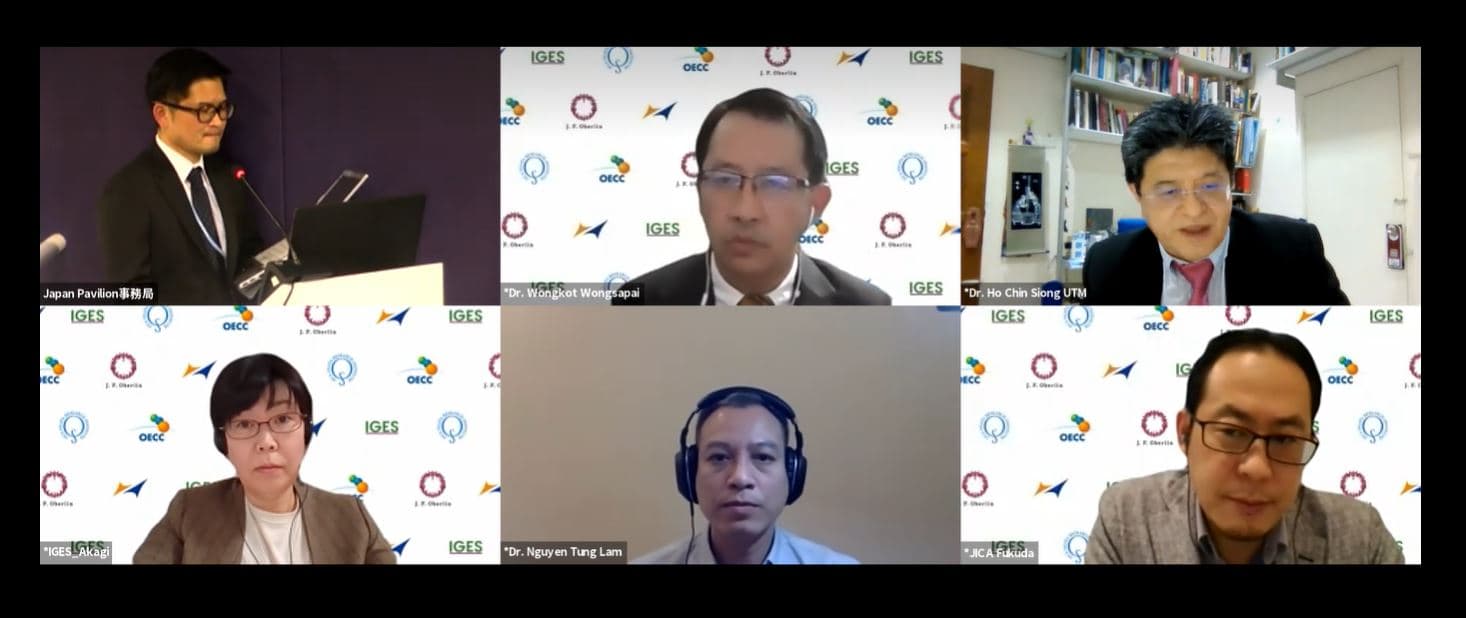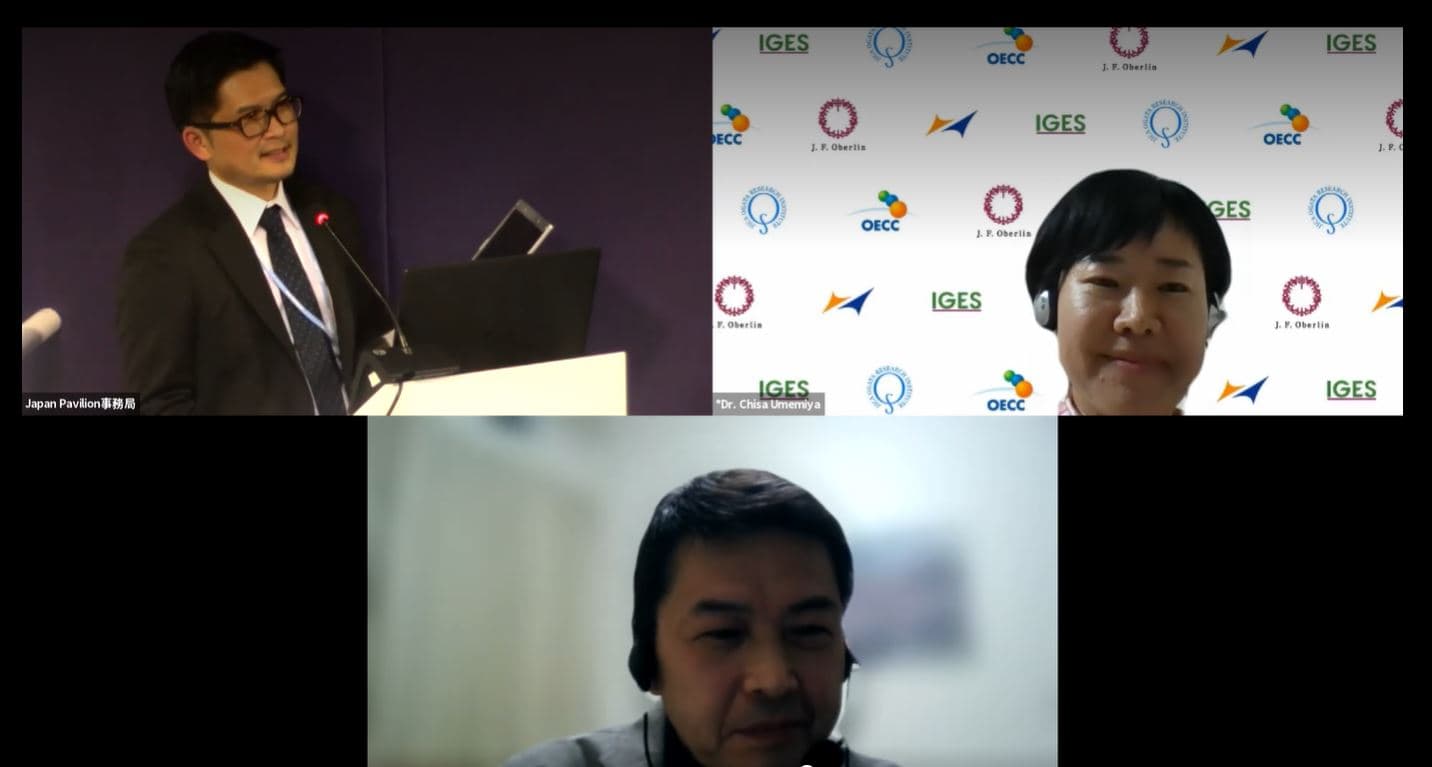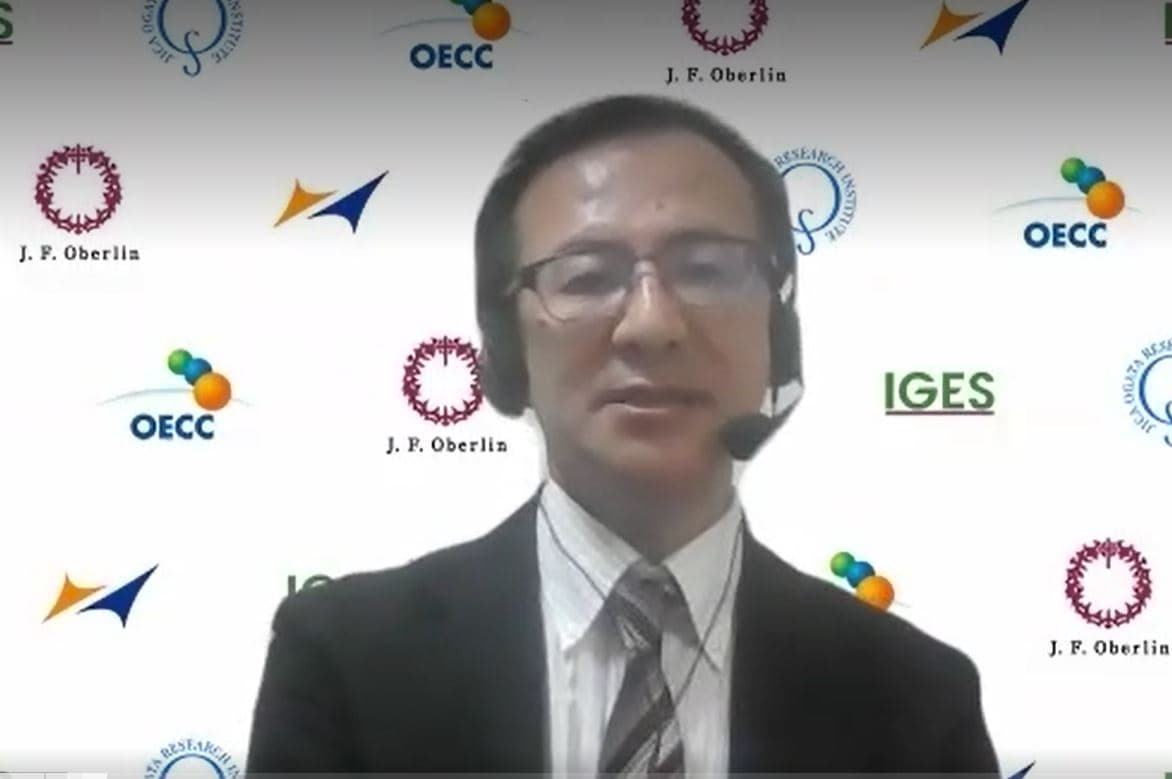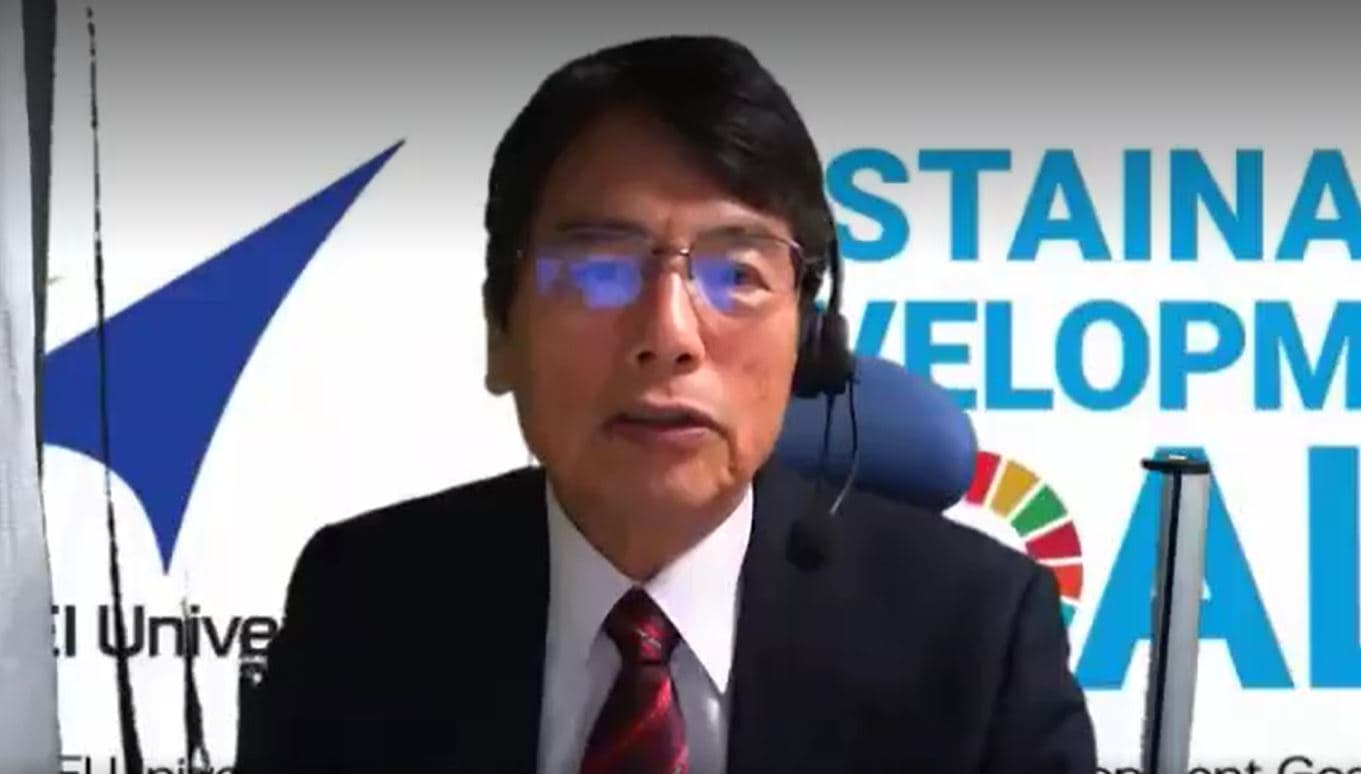2021.11.4 THU
13:00-14:30
2021.11.4
The challenging issues of Environment/Climate Change Institution and Policy under SDGs Regime
JICA Ogata Sadako Research Institute for Peace and Development
Co-organizer
Hosei University, Oberlin University, Overseas Environmental Cooperation Center Japan(OECC), Institute for Global Environmental Strategies(IGES)
Seminar abstract
The JICA Ogata Research Institute has implemented policy research on developmental approaches to the environment and climate change in emerging countries based on the subject of cooperation in the fields of environment and climate change in developing countries. In particular, we have collected and analyzed case studies, focusing on national greenhouse gas inventories, which is closely related to the Paris Agreement, and climate change action plans in cities, which are non-governmental entities. In this seminar, we will report on the results of our research, namely the importance of capacity building and effective approaches for supporting countries to implement new initiatives required by SDGs and the Paris Agreement, and exchange opinions with an expert from ASEAN countries to make recommendations for future policies.
Speakers
- • Makoto Kato Overseas Environmental Cooperation Center Japan General Manager/Principal Researcher
▼Online speakers
• Ryo Fujikura Hosei University Professor
• Masato Kawanishi Japan International Cooperation Agency Senior Advisor
• Chisa Umemiya Institute for Global Environmental Strategies Research Manager
• Koji Fukuda Japan International Cooperation Agency Chief Advisor
• Junko Akagi Institute for Global Environmental Strategies Research Manager
• Ho Chin Siong University Technology Malaysia Professor
• Wongkot Wongsapai Chiang Mai University Associate Professor
• Nguyen Tung Lam Vietnam National Productivity Institute Acting Director
• Ichiro Adachi JICA Ogata Sadako Research Institute for Peace and Development Executive Senior Research Fellow
Event Materials
Session Summary
• At the beginning of the session Prof. Fujikura explained that the importance of voluntary developmental efforts by developing countries is increasing under international agreements such as the SDGs and the Paris Agreement, however there are still many issues to be addressed in terms of environmental policy and climate change. He introduced the JICA Ogata Sadako Institute for Peace and Development, which conducts policy research on developmental approaches to the environment and climate change based on international cooperation with developing countries;
• After giving an outline of the work of the JICA Ogata Sadako Institute for Peace and Development, Mr. Adachi explained the background and objectives of the research project "The Challenging Issues of Environment/Climate Change Institution and Policy under the SDGs Regime." He stated that continuous technical cooperation including MRV and NDC is an essential part of the increase in transparency among countries, and a bottom-up approach such as cooperation between cities is a characteristic of Japan's approach to this task;
• The first session focused on Indonesia and ASEAN countries as a whole, discussing the capacity needed to strengthen the implementation of climate change policies at the national level, and the role of development cooperation in this. Dr. Kawanishi presented a case study of JICA technical cooperation on the GHG inventory in Indonesia, and suggested that technical cooperation can have catalytic effects on endogenous and long-term capacity development in developing countries. Dr. Umemiya reported on the survey results, which show the status of roles and responsibilities, the human resources available, and data collection in GHG national reporting in Asia Pacific regions, and the challenges and their effective solutions. In the Q&A session, there were questions from the floor, such as the applicability of the results for aid to Africa;
• The second session focused on the implementation of climate change action plans at the local government level in Vietnam, Malaysia and Thailand. Mr. Fukuda presented a comparative analysis of the case studies of Hai Phong City and Ho Chi Minh City on the factors influencing climate change action plans (CCAP) at the local government level in Vietnam and the role of international cooperation in plan implementation. Dr. Ho from the University Technology Malaysia introduced the case of Low Carbon Society Blueprint (LCSBP) in Iskandar Malaysia, which was developed through JICA’s SATREPS cooperation, as a model case of municipal climate change measures. Dr. Wongkot from Chiang Mai University reported on the results of a survey by JICA with the Bangkok Metropolitan Administration on capacity building for each stakeholder in the Project for Bangkok Master Plan on Climate Change 2013-2023, and suggested the importance of climate change in development cooperation;
• Prof. Fujikura concluded the seminar with closing remarks stressing the essential nature of research on national and local government approaches in developing nations and the effectiveness of development cooperation from JICA and other organizations.
Message and Results
• This study finds that technical cooperation interacts with changes in the institutional environment, catalyzing the endogenous capacity for development;
• Increasing the successful cases for transparency capacity building in the Asia Pacific region is necessary, and it is important to ensure these successful cases spread even in countries currently having low capacity for change;
• As the research identifies the importance of continuous development cooperation and the bottom-up approach, it is essential to keep conducting the field survey.




2021.11.4 THUTimetable
10:30 - 12:00
2021.11.4
Institute for Global Environmental Strategies
15:00 - 16:30
2021.11.4
Sasakawa Peace Foundation
17:00 - 18:30
2021.11.4
United Nations University Institute for the Advanced Study of Sustainability (UNU-IAS)
